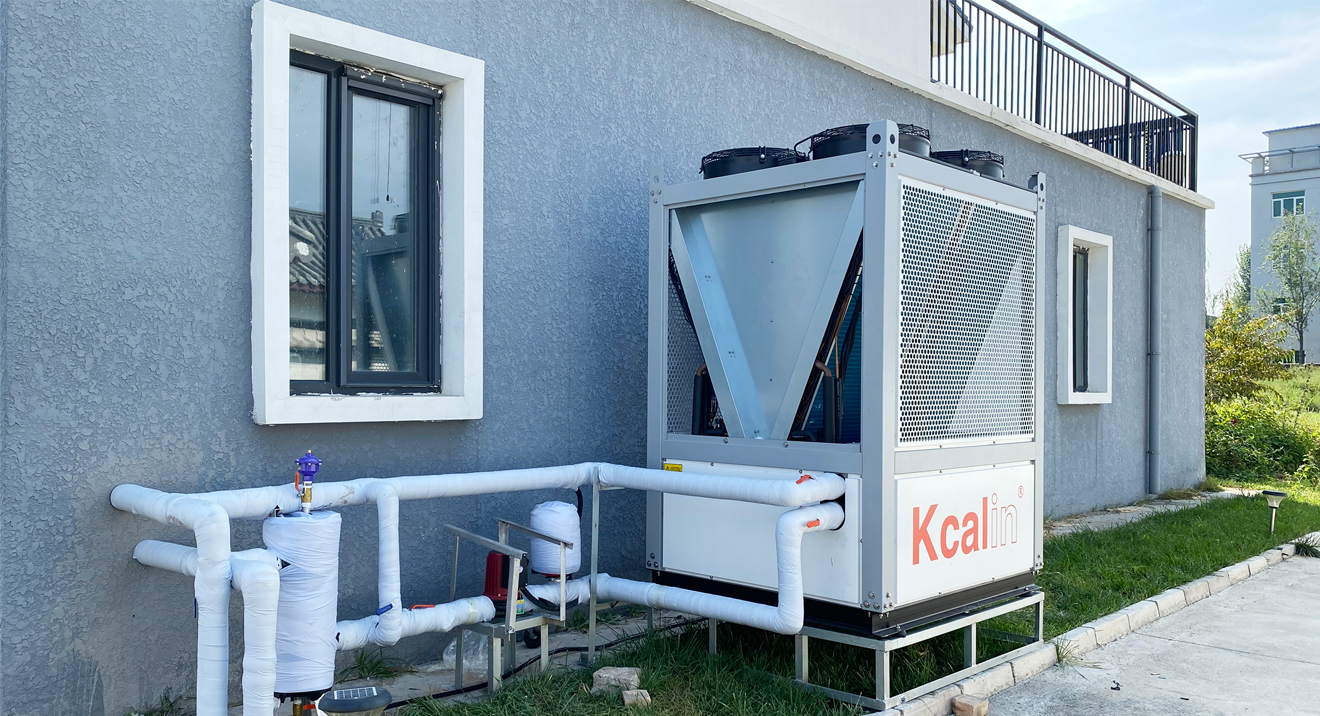Maintaining warmth indoors is crucial in cold seasons. When choosing a suitable Hydronics, we often face the choice of air source heat pump and air conditioning. Today, Kcalin New Energy will compare the heating effects of these two systems to help you make wise choices.
Working principle and differences
Air source heat pump: An air source heat pump utilizes the heat energy in the air for heat exchange, providing heating effects through the circulation of refrigerants. It absorbs heat from the outdoor air and transfers it to the indoor space through the process of compression and expansion, achieving heating effects.
Air conditioning: The air conditioning system mainly reduces indoor temperature through refrigeration cycles, expelling indoor heat from the outside to achieve cooling effects. Traditional air conditioners usually do not have heating capacity and can only perform refrigeration operations. However, some modern air conditioning systems may be equipped with auxiliary electric heating functions to achieve mild heating effects.
Comparison of heating capacity

Air source heat pump: Air source heat pumps perform excellently in heating. They can extract heat from the low-temperature outdoor air and transmit warm air to the indoor space through the process of compressing and releasing heat, maintaining a comfortable temperature indoors. Air source heat pumps have high heating efficiency and energy efficiency ratio, and can provide stable and comfortable heating in cold weather conditions.
Air conditioning: Traditional air conditioning systems typically do not have heating capacity and can only perform refrigeration operations. Although some models in modern air conditioning systems are equipped with auxiliary electric heating function, which can achieve mild heating effects, their heating capacity is relatively weak. These systems are more suitable for providing cooling effects in high temperature seasons, while their heating effect is not ideal in cold seasons.
Comprehensive consideration and selection guide
When selecting a suitable heating system, the following factors should be comprehensively considered:
Environmental conditions: Air source heat pumps can provide stable heating effects under various climatic conditions, while air conditioning systems have weaker heating effects in cold climates. If the temperature in your area is low and requires strong heating capacity, air source heat pumps are a better choice.
Energy efficiency ratio and energy-saving: Air source heat pumps have a high energy efficiency ratio and can provide heating effects with lower energy consumption. This helps to reduce energy costs and save energy. Air conditioning systems typically have lower energy efficiency in heating mode and higher energy consumption when using electric heating.
Functional requirement: If you need not only heating, but also refrigeration and hot water supply in winter, air source heat pump is a better choice. It can meet a variety of needs and provide a comfortable indoor environment throughout the year.
Installation and maintenance: There are some differences in the installation and maintenance of air source heat pumps and air conditioning systems. Air source heat pumps require the installation of indoor and outdoor components, such as the connection between outdoor and indoor units, and require professional personnel for installation. The installation of air conditioning systems is relatively simple, usually requiring only the installation of indoor and outdoor units. In terms of maintenance, the air source heat pump needs to regularly clean the filter screen and check the refrigerant charge, while the air conditioning system mainly needs to regularly clean the filter screen and maintain the condenser.
Air source heat pumps perform better in terms of heating efficiency, especially suitable for heating needs in cold climates. It has a high energy efficiency ratio and versatility, and can provide a comfortable indoor environment throughout the year. However, depending on your specific needs, climate conditions, and budget, you can also consider the auxiliary electric heating function of the air conditioning system. When choosing a suitable heating system for you, it is recommended to consider the above factors comprehensively and consult professionals to obtain accurate advice.







Comment